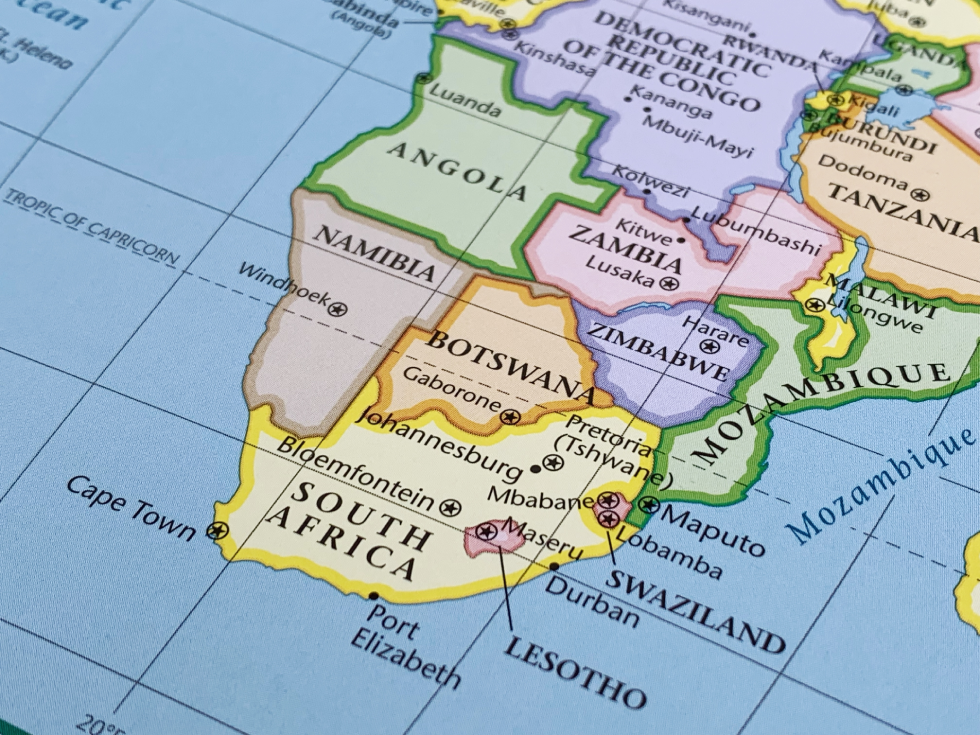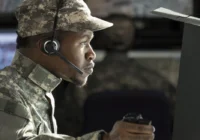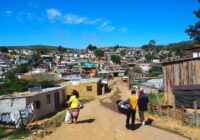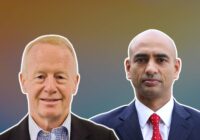The 2024 election results in several Southern African countries highlight the political renewal issue. However, each case has distinctive characteristics that require analyses diversified from the generic “wind of change.” For some analysts, the birth of South Africa’s new coalition government heralds change for the region and its leaders. They probably indicate that Southern Africa, a region whose governments are dominated mainly by former liberation movements, may be approaching a post-liberation movement era.
Indeed, in May, we witnessed the first significant indication when, in South Africa, the ruling African National Congress (ANC) lost its majority in May, making it necessary to form a coalition government. However, this did not depend only on the crisis of the ANC and the demands by some social and economic groups but also on the presence of other parties, such as the one headed by former President Jacob Zuma, which likely intercepted votes from poor and dissatisfied people, that is, those political and social groups that the ANC is struggling to reach today.
Specifically, some consider the role of Zuma through some themes of debate: The first theme is “Jacob Zuma as Donald Trump,” the second is that uMkhonto weSizwe (MK) party’s strong performance can be explained by Zuma’s appeal to Zulu “nationalism,” signaling that they have successfully appealed to aspects of Zulu culture and history to get support. Third, MK’s rise may be the product of a “coalition of the aggrieved”: Those who have felt sidelined by the Ramaphosa government’s policies, as mentioned above.
October: Botswana and Mozambique
The two October elections in Botswana and Mozambique are interesting and, at the same time, have different elements.
Botswana differs from the regional context because, in this case, the nationalist party that led the country to independence in 1966 was not an armed liberation movement as in most cases in the region (Angola, Namibia, Zimbabwe, Mozambique and South Africa). The Botswana Democratic Party (BDP) then remained in government as the dominant party for almost sixty years.
The opposition Umbrella for Democratic Change (UDC) has won a majority in parliament; its leader, Duma Boko, 54, a Harvard-educated human rights lawyer, praised the peaceful handover. “What has happened today takes our democracy to a higher level,” he declared.
The election outcome in Botswana highlights the need for renewal in a stable and democratic political system characterized by high levels of social inequality and forms of marginalization, which have somehow influenced the electoral results.
Indeed, when Botswana gained independence from Britain in 1966, it was one of the world’s poorest countries. However, economic planning and the discovery of diamonds allowed the ruling BDP to provide efficient services and maintain political stability. The nation of 2.5 million people held elections every five years. In 2023, Botswana had the highest GDP per capita in sub-Saharan Africa. For decades, Botswana was considered one of the best-run countries in Africa.
But things are partially different. The people of Botswana voted to replace the party responsible for mounting economic grievances, particularly among young people. Unemployment and mismanagement were the top concerns among most voters: The BDP had not delivered on its promises of social development, and the cost of living was very high.
The election results register the anger of citizens over economic stagnation linked to a decline in the diamond trade, on which the country’s economy depends. Botswana’s leaders have maintained inequality instead of spending on health, education and social welfare. A downturn in the global diamond market caused economic growth to plummet this year to a projected 1%, while unemployment rose to 28%. The new government will need to focus on reducing diamond dependency, stabilizing the economy and creating new jobs, especially for young people.
The new president has said he will try to contact De Beers as quickly as possible. He has also campaigned to raise the minimum wage and increase social grants.
Botswana is linked to other countries by elements of social marginalization and forms of crisis for some population groups. According to UNDP estimates, Botswana remains profoundly unequal, with a significant Gini index that places it among the world’s top ten most unequal countries, together with South Africa and Namibia.
In Mozambique, there has been a significant demand for change, especially from middle-class and urban groups that do not see the old liberation movement — Frente de Libertação de Moçambique (Frelimo) — as an adequate interlocutor to solve the country’s economic problems. Despite accusations of electoral fraud and serious violence by government security apparatuses, the official results have confirmed Frelimo in power and its candidate Chapo, who does not belong to the old guard of liberation fighters, as president. Consequently, a new form of political and social battle has opened, even violent, in the search for renewal and the search for stability in a country where historical inequalities and political and regional diversity are still very strong and where the armed Islamist rebellion in the northern province is causing further forms of destabilization to which the government intends to respond firmly.
As mentioned, turmoil has followed the presidential and parliamentary elections in Mozambique. The current protests have been more sustained and widespread, especially in the capital, Maputo. At the same time, opposition leader Mondlane actively calls for the annulment of the elections.
However, as mentioned by sociologist Ruth Castel-Branco, on the eve of the October general election, Podemos opposition was a party without a candidate, who found in Venâncio Mondlane a candidate without a party. He is a charismatic leader who managed to ride the wave of youthful indignation. A gospel preacher, Mondlane preaches about tyranny and corruption, development and prosperity, peace and unity. But he inclines toward authoritarian populists. It is unclear whether Podemos and Mondlane can deliver a new dispensation through their marriage, as Mondlane intertwines his theological views with a neoliberal economic agenda. Although Podemos has “socialist” roots, it does not have the political and organizational coherence to influence Mondlane’s political base. And it has become increasingly clear that there will be no peace in Mozambique if there is no justice.
Certain requests for change in Southern Africa depend on the historical context. The old liberation movements are in crisis, and today, they no longer seem able to control the social and political transformations in the era of liberalism, even if they try to respond to contemporary challenges.
November, Namibia
In Namibia, these elements have shaped the political debate, but the results of the November elections reaffirm the substantial status quo, solidifying the old party/movement’s hold on power. What is certain is that the candidacy of a woman for the presidency by the South West Africa People’s Organisation (SWAPO) — something far from widespread and obvious in Africa — has probably given the ruling party an extra opportunity, an element of “positive” novelty. Netumbo Nandi-Ndaitwah, born in 1952, is a former activist of the SWAPO youth league and belongs to the party’s old guard. In a country where the opposition’s requests for change are still unmet, she reverses a regional trend in which some social sectors seek political change.
“The Namibian nation has voted for peace and stability,” Nandi-Ndaitwah said. Her victory cements the SWAPO party’s 34-year hold on power since independence from apartheid South Africa in 1990, while opposition parties have rejected the results after technical problems, including shortages of ballot papers and other issues, marred the election.
Many regarded her as a seasoned diplomat untouched by the corruption scandals that engulfed some other members of SWAPO. Her triumph also signifies that Namibia defies a trend where restive younger voters in southern Africa punish incumbent liberation movements.
The Electoral Commission admitted to failures in organizing the vote, but the chairperson rejected all allegations of fraud. “I urge all Namibians to embrace the results with the spirit of unity, diversity, understanding and reconciliation,” she said.
In conclusion, we must recognize the search for change in the Southern African region’s political and social history. Many of its voters come from poverty and unemployment.
Former liberation movements have emphasized their past armed struggles to provide historical legitimacy and to build popular support. However, the liberation narrative seems to be vanishing for the populations governed by these movements. They face the challenge represented by a new, younger, more urbanized electorate, for whom past successes in achieving independence from colonial powers are less relevant than those of their parents and grandparents. The electorate’s demand for change to address problems such as unemployment and social injustice is growing, along with a demand for a more significant fight against corruption.
Regardless of the outcome, the election results in the region should warn ruling parties that they must deliver on the economic promises they made to their electorates. Furthermore, they cannot expect to rule in perpetuity.
[Liam Roman edited this piece.]
The views expressed in this article are the author’s own and do not necessarily reflect Fair Observer’s editorial policy.
Support Fair Observer
We rely on your support for our independence, diversity and quality.
For more than 10 years, Fair Observer has been free, fair and independent. No billionaire owns us, no advertisers control us. We are a reader-supported nonprofit. Unlike many other publications, we keep our content free for readers regardless of where they live or whether they can afford to pay. We have no paywalls and no ads.
In the post-truth era of fake news, echo chambers and filter bubbles, we publish a plurality of perspectives from around the world. Anyone can publish with us, but everyone goes through a rigorous editorial process. So, you get fact-checked, well-reasoned content instead of noise.
We publish 2,500+ voices from 90+ countries. We also conduct education and training programs
on subjects ranging from digital media and journalism to writing and critical thinking. This
doesn’t come cheap. Servers, editors, trainers and web developers cost
money.
Please consider supporting us on a regular basis as a recurring donor or a
sustaining member.
Will you support FO’s journalism?
We rely on your support for our independence, diversity and quality.







Comment
How nice indeed to have a summary of what is happening in Africa. Even more so, since prof Mario Zamponi who knows these contries for visiting and studying them for the past three decades.